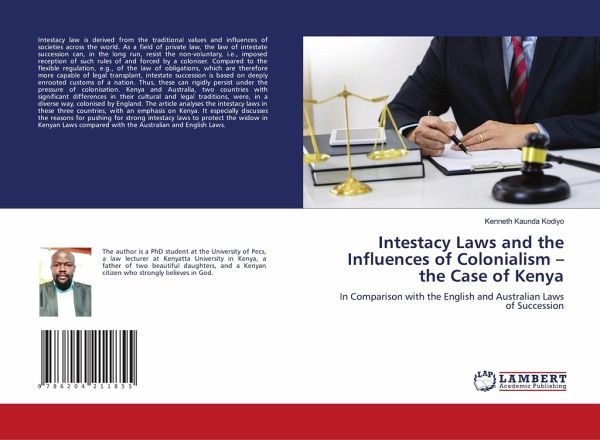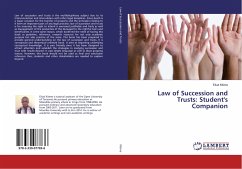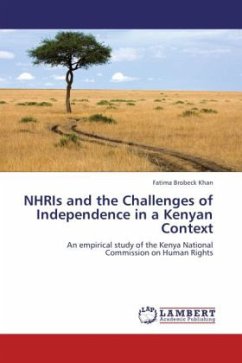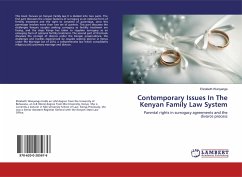
Intestacy Laws and the Influences of Colonialism -the Case of Kenya
In Comparison with the English and Australian Laws of Succession
Versandkostenfrei!
Versandfertig in 6-10 Tagen
27,99 €
inkl. MwSt.

PAYBACK Punkte
14 °P sammeln!
Intestacy law is derived from the traditional values and influences of societies across the world. As a field of private law, the law of intestate succession can, in the long run, resist the non-voluntary, i.e., imposed reception of such rules of and forced by a coloniser. Compared to the flexible regulation, e.g., of the law of obligations, which are therefore more capable of legal transplant, intestate succession is based on deeply enrooted customs of a nation. Thus, these can rigidly persist under the pressure of colonisation. Kenya and Australia, two countries with significant differences ...
Intestacy law is derived from the traditional values and influences of societies across the world. As a field of private law, the law of intestate succession can, in the long run, resist the non-voluntary, i.e., imposed reception of such rules of and forced by a coloniser. Compared to the flexible regulation, e.g., of the law of obligations, which are therefore more capable of legal transplant, intestate succession is based on deeply enrooted customs of a nation. Thus, these can rigidly persist under the pressure of colonisation. Kenya and Australia, two countries with significant differences in their cultural and legal traditions, were, in a diverse way, colonised by England. The article analyses the intestacy laws in these three countries, with an emphasis on Kenya. It especially discusses the reasons for pushing for strong intestacy laws to protect the widow in Kenyan Laws compared with the Australian and English Laws.












